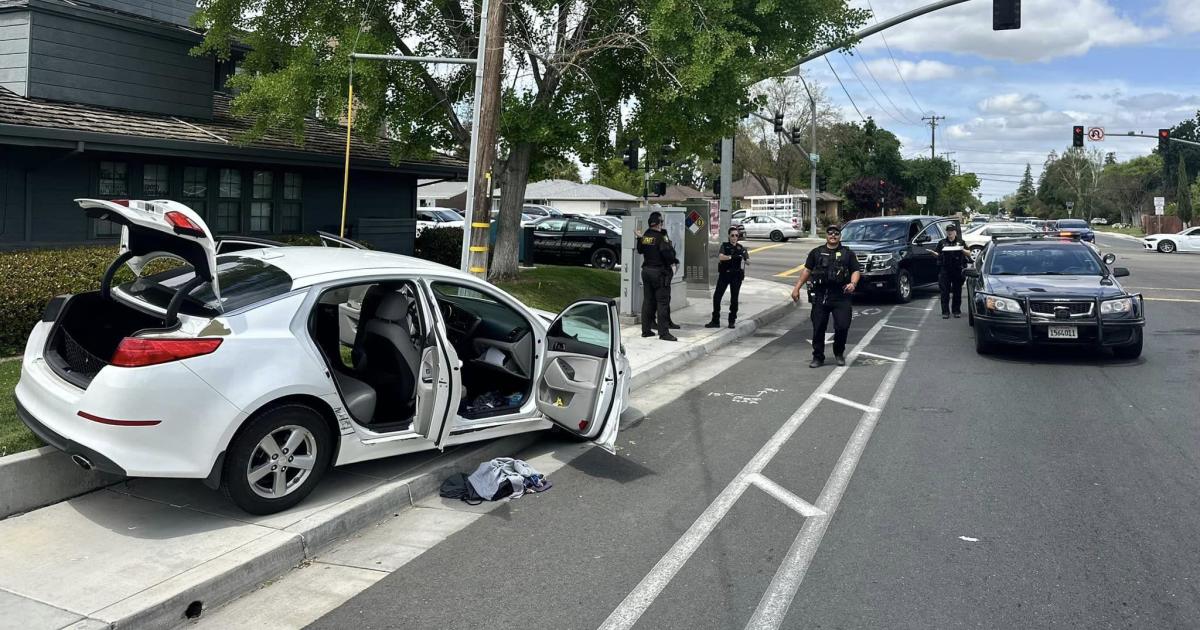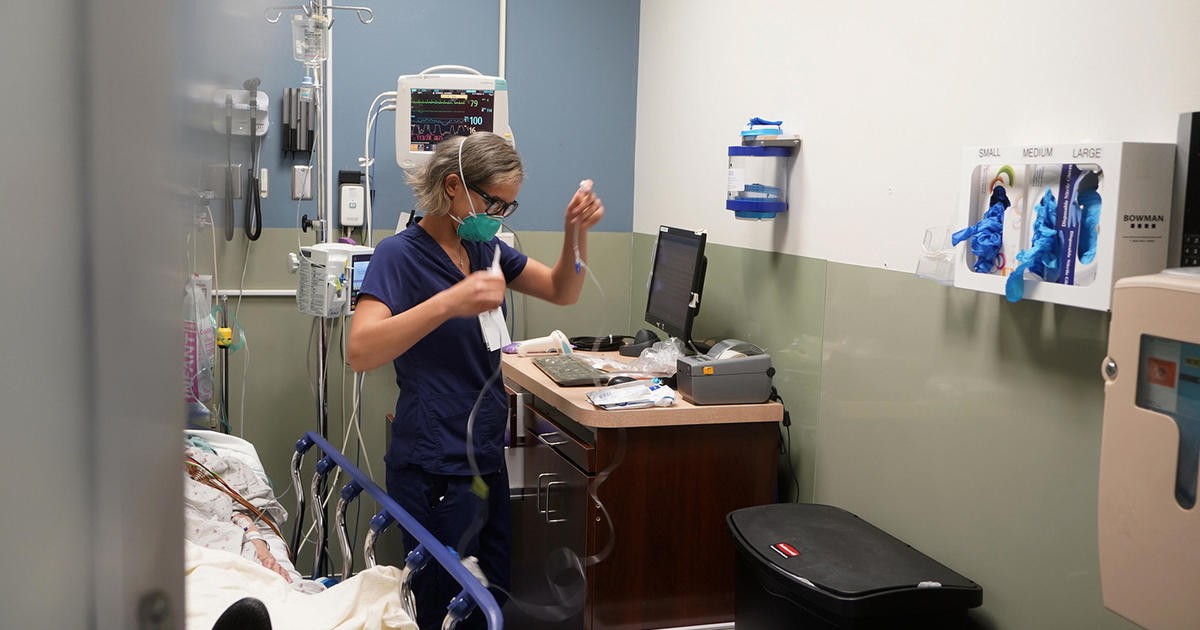Juvenile Injustice In California Youth Prisons?
When kids go to prison in California, it's not pretty.
Joaquin Diaz De Leon knows it first-hand.
He was locked up in a California state juvenile prison when he was 16 years old.
"And I witnessed how the correctional officers would put you in your place," he tells CBS13's Sam Shane. "And if you weren't in your place, they beat the s*** out of you behind closed doors and in front of the other people."
For instance there's an infamous piece of surveillance video tape. On Jan. 20, 2004, a young man named Narcisco Morales was a prisoner at Chaderjian Youth Correctional Facility in Stockton.
He and another prisoner named Vincent Baker were placed on the floor while two guards, Delwin Brown and Marcel Berry, repeatedly punched the two young men as they lay face down.
The guards deliver blow after blow while other guards stand by and watch.
Six years later Narcisco Morales spoke about the brutal beating to representatives of The Ella Baker Center for Human Rights.
"I thought I was gonna die that day," he told them. "I was just happy I survived it and was given another chance."
Jakada Imani is the executive director for The Ella Baker Center in Oakland.
Reporter: "That's a remarkable piece of videotape."
Jakada Imani: "Yeah, it's horrific."
Reporter: "He took something like 28 blows to the head."
Imani: "To his head, laying on the ground."
It was a black eye and a low point for California's Division of Juvenile Justice.
"But it is difficult for us to see because we don't want to be connected with that," responded Rachel Rios, the acting director of the Department of Juvenile Justice. "That is not what we want to show."
She is quick to point out that what we see in the video has always been unacceptable.
Rios says that reform is well under way and positive changes have happened.
But Lina Roldan is not so sure.
"It's cruel in there period," she told CBS13.
Her 18-year-old son is a prisoner in Chad.
She says he's tried to commit suicide three times in the prior three weeks.
Lina says her son is afraid of other inmates and he says the guards are not protecting him.
"I just seen my son today," she said. "He's marked up, he's scarred up, and he says that's his ticket to freedom if he kills himself. So it's hard, it's really hard to hear that."
Critics say serious problems remain in California's four juvenile prisons.
"They use pepper spray a lot," said Sarah Norman, a lawyer for the Prison Law Office, a non-profit that in 2003 sued the California Youth Authority (now the Department of Juvenile Justice) over its conditions. "And they very often use it against mentally ill youth."
The lawsuit describes how the department deprived teenage prisoners the required education and subjected them to illegal conditions of confinement, isolating them for more than 23 hours a day.
Joaquin Diaz De Leon still lives with the memories of isolation.
Reporter: "So when you were in Ione you were in solitary confinement with no plumbing, no bed for 24 hours, with no food?"
De Leon: "That's right."
An Alameda County judge ordered department officials to fix those and several other problems; but in a hearing for an order granting the motion to enforce court-ordered remedial plans this July, the court said the department has "failed to do so."
The judge later ruled that department officials have "willfully violated the court's orders."
Reporter: "The court has ordered (the department) to end the practice of isolation. Are you still isolating?
Rios: "We don't isolate youth; we don't isolate youth."
Rios says some prisoners are being "restricted."
Norman says it doesn't matter what you call it.
"I'd consider being locked in a cell for 21, 22, 23 hours a day without anyone to talk to, I'd consider that solitary confinement, yes."
A 2004 court settlement ordered the department to treat prisoners more humanely.
When young prisoners leave a state-run youth prison in California, critics like Norman say the odds are 8-in-10 they'll be back behind bars in three years or less.
It's a remarkable failure rate especially when you consider how much it's costing taxpayers.
The state of California is spending $200,000 a year for each of its more than 1,100 youth prisoners.
"We could send a young person to Harvard and Yale for the amount of money we spend to send them to these youth prisons," said Imani, "where they get out and reoffend."
Joaquin eventually got out, and stayed out.
Today this former gang member is going to college in San Francisco.
"We all need grace, we all do 'cause if it was you or your son or your daughter, someone you care for, you want them to have grace. But we seem to forget that sometime" he said outside a campus building.
Rios admits that those who run the department now have learned from past mistakes.
"And we recognize that we still have work to do," she said. "We're not saying that we're completely done in our change; we still have work to do."
For Narcisco Morales, whose beating brought to light the brutality inside California's youth prisons, one of life's challenges after finding freedom again was finding his self-esteem.
"Here they are telling me that I'm stupid, that I'm not gonna amount to nothin', that I'm nothin' but an animal that, pretty much this right here, that I'm not gonna graduate and I'm gonna go to prison, that's all I'm good for," he told The Ella Baker Center. "And you tell that enough to a person long enough, I mean, you're gonna believe it."
Norman, along with Dr. Barry Krisberg, who is the legal expert assigned by the courts to report on the department conditions, say the California Department of Corrections and Rehabilitation and the Division of Juvenile Justice have dramatically improved their academic programs by changing curriculum and filling staff and teacher positions required by the court-ordered remedial plan.
Vocational programs that teach skills ranging from auto mechanics to computer and electronics recycling are in place too; in fact the recycling program has resulted in the prison system partnering with Merit Partners, a non-profit, for jobs and job training at Chad, and operating its own eBay store. The parts they sell help finance a victims' restitution fund.
Dr. Krisberg, the court-appointed expert, says the DJJ has made a lot of progress over the last seven years.
There is less lock-up, less force being used, emphasizing that the DJJ has reduced and minimized what led up to the lawsuit.
He says they're on route but not there yet; it's not a model program.
Dr. Krisberg says it's very important that the inmate population is lower, which improves staff-to-inmate ratios.
He says he has faith in Rios, the youth system's new director.
Meanwhile, she and other officials may find out in January whether they've satisfied the judge; if not, the DJJ and CDCR could be held in contempt of court.



